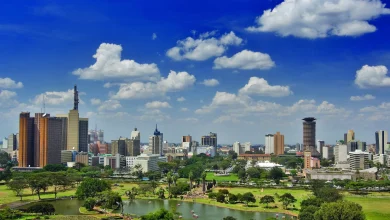GMO rift widens: Kenya halted, Tanzania resists

NAIROBI — East Africa’s debate over genetically modified organisms (GMOs) deepened this week after Kenya’s Court of Appeal blocked the government from importing GMO foods, even as Tanzania reaffirmed its refusal to embrace the technology.
The court ruling, delivered Tuesday in Nairobi, suspends all government actions tied to GMO imports and promotion until a full hearing is held.
The case was filed by the Kenya Peasants League, Biodiversity and Biosafety Association of Kenya and 18 other groups.
“We celebrate this ruling as a major victory for small-scale farmers across Kenya,” said David Otieno, a member of the Kenyan Peasants League. “GMOs are not the solution to food insecurity.
Instead, they deepen dependency on multinational agribusinesses, threaten biodiversity, and compromise farmers’ ability to control their food systems.”
President William Ruto’s administration had lifted Kenya’s 10-year GMO ban in October 2024, citing the need to boost food security after prolonged drought.
The reversal, supported by a new 10-year biotechnology strategy endorsed by East African Community (EAC) states, was meant to harmonize policies and spur regional trade.
But the decision has faced pushback at home and abroad.
Critics argue genetically engineered crops, often designed to withstand herbicides like glyphosate, could lock farmers into dependence on multinational seed and chemical companies.
Across the border, Tanzania is holding its ground. Agriculture Minister Hussein Bashe said earlier this year that the country “is not open” to GMO technology, even as he tasked the Nelson Mandela African Institute of Science and Technology with expanding indigenous and hybrid seed development.
Officials say Tanzania has already achieved 128 percent food sufficiency through agroecological practices without GMOs.
Prof. Maulilio Kipanyula, NM-AIST’s vice-chancellor, confirmed the institute is working with seed scientists and the National Food Reserve Agency to multiply varieties suited for local conditions.
“We have the land and the expertise to support sustainable farming practices,” he said.
The split highlights a growing divergence within the EAC. While Kenya has pushed to integrate biotechnology into regional trade, Tanzania insists on food sovereignty and seed independence.
Analysts warn the divide could complicate efforts to harmonize agricultural policy across the bloc.




